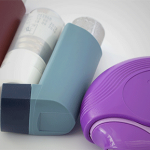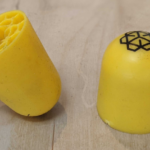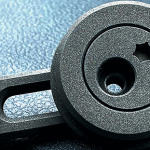- Home
- 3D Printing
- 3D Printing: In-House or Outsource?
3D Printing: In-House or Outsource?
Introduction
This year’s CES in Las Vegas was living proof that new technologies are emerging on an almost daily basis. Yet among the cars and gadgets, perhaps none has crossed the business-to-consumer divide – or captured the imagination as successfully – as 3D Printing.
Hailed as “the next major leap forward in design and manufacturing”, new advances in 3D Printing continue to improve on already ground-breaking technologies.
Recently, with prices falling and new low cost systems beginning to emerge, some businesses have begun to look at bringing their 3D Printing requirements in-house.
Is this a wise strategy?
The rise of ‘consumer’ 3D Printing
The increasing interest in 3D Printing within the consumer space has led to the availability of a number of 3D printers designed for home use. These are often sent out as ‘DIY kits’ for assembly at home, with prices ranging from £500 – £3000.
However their compact size, limited capabilities and patchy reliability make them unsuitable for professional use, especially if any kind of scale is required.
Understanding the options
It is important to note that 3D printing is not a single catch-all process. The term ‘3D Printing’ actually encompasses a variety of different systems which used to be called “Rapid Prototyping” and is sometimes referred as “additive manufacturing technology”. Each system has different capabilities and features.
FDM (Fused Deposition Modelling)
FDM technology provides a solid and sturdy end product by utilising manufacturing grade thermoplastics, drawn out and heated from a coil that is then deposited and bonded in layers. This means FDM can be used to create fully functional parts.
FDM printers for high quality professional use cost from £100,000 to £300,000. Depending on the design and functionality of the desired product, a range of different thermoplastic materials can be used, each with different features and merits. These properties can include a high temperature tolerance or resistance to chemical exposure.
Surface finish of FDM parts may be rougher and less detailed in comparison to other 3D printing methods, with ‘layer lines’ being visible on the final product. The orientation of the part during build is critical if certain features or functions need to be achieved, though additional finishing processes can improve any visual flaws.
It is worth noting that the vast majority of low cost “3D Printers” are based on FDM technology, however, the quality of machines and control software is a lot lower.
SLA (Stereolithography)
SLA is perhaps the most common form of 3D Printing and tends to be what most people think of when referring to 3D Printing. It was the first form of 3D printing, and part qualities and technologies have been improving ever since. Modern SLA machines may cost from £200,000 to £500,000 depending on the part quality that is required.
The SLA process uses photo-curable liquid resin, which is then treated with a concentrated UV laser. The UV laser rapidly sets targeted areas of the resin, building up gradually to create the final product. This method allows for enhanced accuracy and detailing, making it ideal for fit and form testing.
SLS (Selective Laser Sintering)
For parts that must have a higher tensile strength, SLS is the more suitable option. Selective Laser Sintering, like SLA, falls under the banner of 3D Printing, but substitutes liquid plastic for a fine powder.
SLS system prices range from around £200,000 to over £500,000 for metal sintering machines. The process offers a range of materials, with options ranging from plastic and nylon through to metals such as aluminium and titanium, however, metals cannot be run on a plastics machine and visa versa.
This makes SLS an ideal method for creating parts to be used in fully operational machinery or products, especially as parts made using SLS methods have a strength comparable to injection moulded or cast products.
What’s the business case for in-house 3D Printing?
The inevitable question arising from the above points is: “Can there be a case for bringing 3D Printing technology in house?”
The answer depends on the following:
- Company size: the six-figure price tags attached to industrial 3D Printing technologies may put them out of reach for SMEs (small and medium sized enterprises) – as well as many large organisations for whom it may be more cost effective to outsource.
- Capital investment plus ongoing cost: the total cost of bringing 3D Printing in-house is significantly more than the initial capital investment cost. The annual and ongoing costs of operation and maintenance may run in to further tens of thousands of pounds.
- Requirement for 3D Printing: if your company designs, develops and manufactures products in-house from drawing board to production line, there may be a clear business case for investing in specific 3D Printing technologies in-house. Indeed, machines may be worth investing in both for prototyping or production part manufacturing purposes.
- Scale: scalability of part production must be a major consideration as large scale volume production of parts may require multiple machines.
- Range of prototyping requirements: there are many types of 3D Printing, each capable of producing parts using different materials with different properties, characteristics and finishes. If your business prototyping needs may extend to many types of parts, properties and characteristics, you will most likely require more than one kind of 3D Printing technology in house.
- Training and development resources: operating and maintaining 3D Printing technologies requires extra staff – all of whom need training, development and management.
- Evolving technology: the lifetime of a 3D Printing machine may be limited by the speed with which the whole field is evolving. No business wants to spend £ hundreds of thousands on technology that will become ‘legacy’ within a short period of time.
Conclusion
Pure business logic suggests that most companies other than the largest manufacturers are advised to outsource 3D printing rather than bring it in house.
The business case for an investment of £ hundreds of thousands (perhaps £ millions) is difficult to make if a business is unlikely to produce enough 3D printed parts to justify the initial outlay – let alone the operational costs.
Experience at Prototype Projects shows that even large companies are hesitant to put forward the massive investment required to implement a functional 3D printing suite unless they have the ready cash and a highly specific, small range of items they want to create. In this case, investing in a single 3D Printing technology capable of meeting a narrow, defined range of specifications may be appropriate.
However, for those requiring a wider range of parts, properties and functionalities, one 3D Printing machine will not be enough as each system its own specific merits and limitations.
This means that investment could run to £ millions if the required range of professional, functional, versatile systems is to be implemented in-house.
On the other hand, the business case for outsourcing 3D Printing to professional bureaus such as Prototype Projects, with a complete range of machine types, technologies, materials, expertise and volume capability is likely to be far stronger.
GOT A 3D PRINTING REQUIREMENT?
Contact Prototype Projects on 01763 249760 or click here to request a quote.





